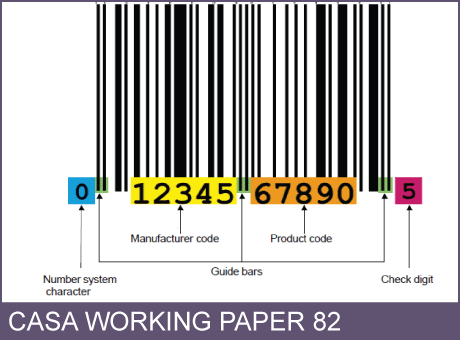CASA Working Paper 82

1 May 2004
Codes of Life: Identification Codes and the Machine-Readable World
In this paper we present a detailed examine of identification codes, their embeddedness in everyday life, and how recent trends are qualitatively altering their nature and power. Developing a Foucaultian analysis we argue that identification codes are key components of governmentality and capitalism. They provide a means of representing, collating, sorting, categorising, matching, profiling, regulating; of generating information, knowledge and control through processes of abstraction, computation, modelling and classification. Identification codes now provide a means of unique addressing all the entities and processes that make up everyday life - people, material objects, information, transactions and territories. Moreover, they provide a means of linking these entities and processes together in complex ways to form dense rhizomic assemblages of power/knowledge.
At present, however, the information that identification codes provide access to are, at best, olgopticon in nature; that is they afford only partial and selective views. In the latter part of the paper we outline four trends - wide scale trawling for data, increased granularity, forever storage, and enhanced processing and analysis - that seek to convert these partial olgopticons into more panoptic arrangements. In turn, we contend that these trends are part of a larger meta-trend - the creation of a machine-readable world in which identification codes can be systematically and automatically 'read' and acted on by software independent of human control. This meta-trend is supported and driven by interlocking discourses such as safety, security, efficiency, anti-fraud, citizenship/empowerment, productivity, reliability, flexibility, economic rationality, and competitive advantage to construct powerful, supportive discursive regimes.
This working paper is available as a PDF. The file size is 4.19MB.
Authors: Martin Dodge, Rob Kitchin
Publication Date: 1/5/2004
 Close
Close

